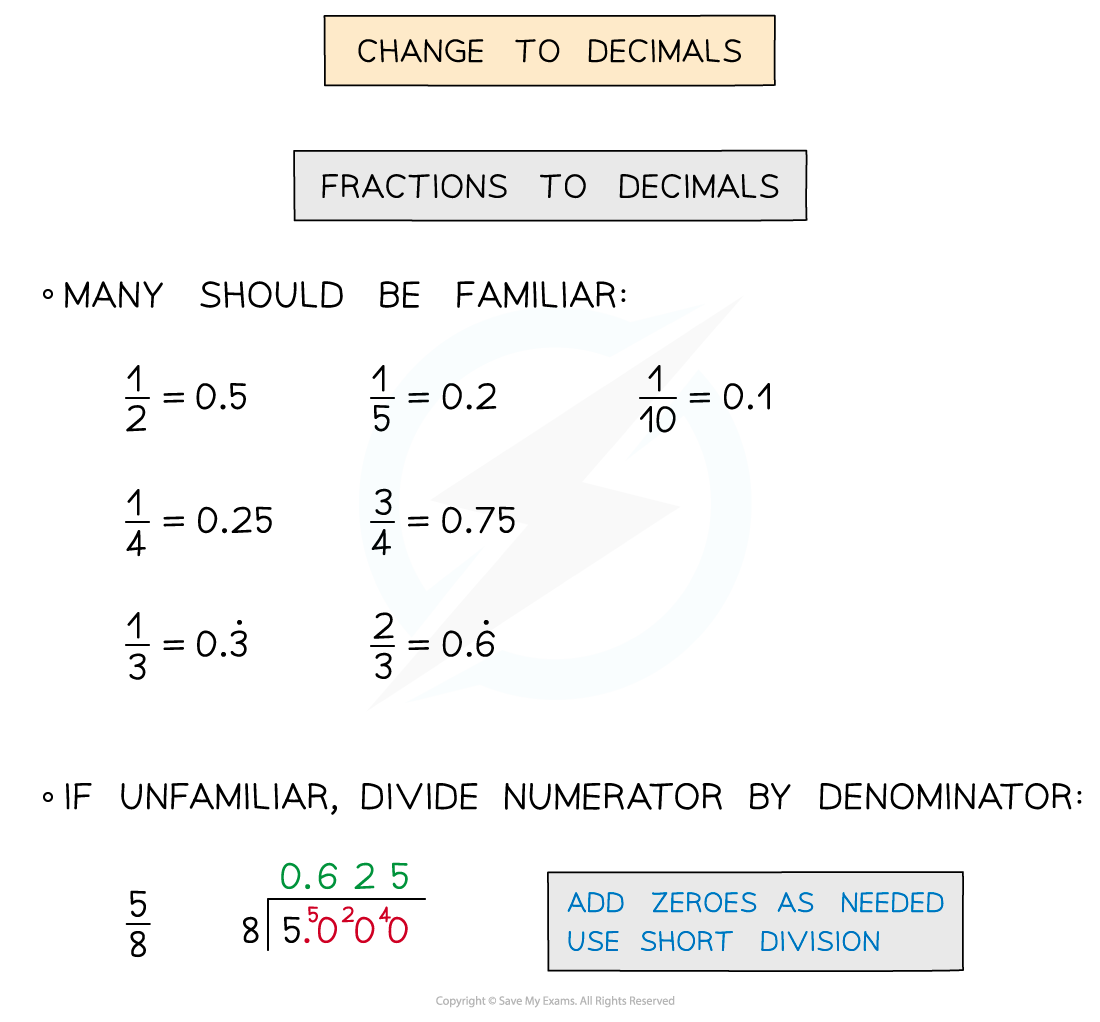Converting Fractions, Decimals & Percentages (Edexcel GCSE Maths) : Revision Note
FDP Conversions
How do I convert from a percentage to a decimal?
Divide by 100 (move digits two places to the right)
6% as a decimal is 6 ÷ 100 = 0.06
40% as a decimal is 40 ÷ 100 = 0.4
350% as a decimal is 350 ÷ 100 = 3.5
0.2% as a decimal is 0.2 ÷ 100 = 0.002
How do I convert from a decimal to a percentage?
Multiply by 100 (move digits two places to the left and add a % sign)
0.35 as a percentage is 0.35 × 100 = 35%
1.32 as a percentage is 1.32 × 100 = 132%
0.004 as a percentage is 0.004 × 100 = 0.4%
How do I convert from a decimal to a fraction?
If it has one decimal place, write the digits over 10
0.3 is
1.1 is
If it has two decimal places, write the digits over 100
0.07 is
0.13 is
30.01 is
If it has n decimal places, write the digits over 10n
0.513 is
0.0007 is
Learn simple recurring decimals as fractions
0.33333… =
is
0.66666… =
is
Whole numbers can be written as fractions by writing them over 1
5 is
How do I convert from a percentage to a fraction?
Write the percentage over 100
37% is
How do I convert from a fraction to a decimal?

Fractions written over powers of 10 are quicker
which is 0.6
which is 0.35
which is 0.002
How do I convert from a fraction to a percentage?
Change fractions into decimals then multiply by 100
which is 0.8 as a decimal, which is 0.8 × 100 = 80%
Examiner Tips and Tricks
A calculator can be used to check conversions between fractions and decimals (even if the question says to show working without a calculator)

You've read 0 of your 5 free revision notes this week
Sign up now. It’s free!
Did this page help you?

